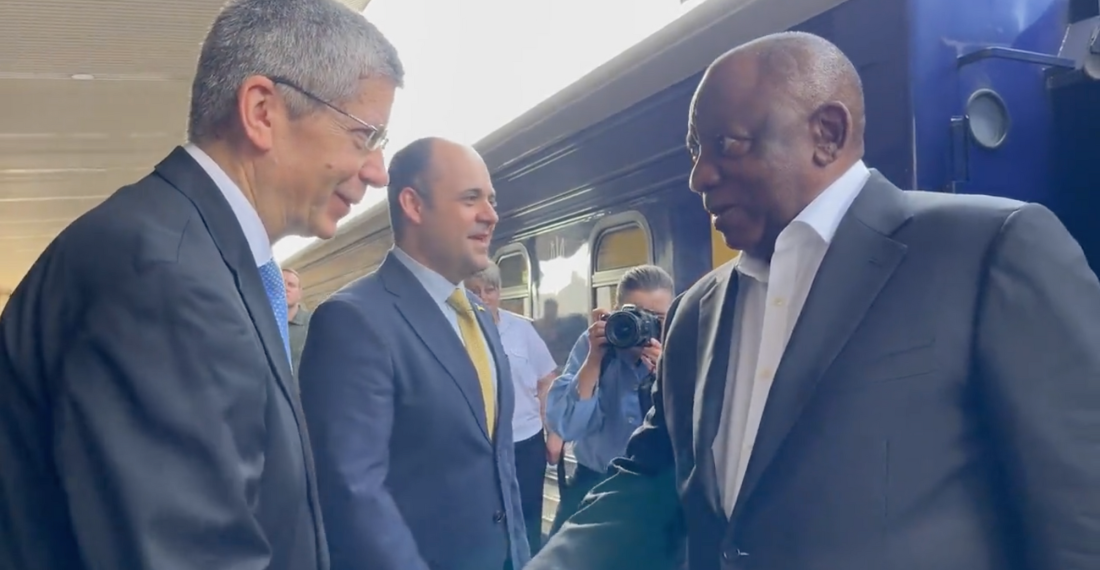Leaders and representatives of seven African countries - South Africa, Senegal, Zambia, Uganda, the Republic of the Congo, Comoros and Egypt - as well as the African Union chief Azali Assoumani, have arrived in Kyiv on Friday (16 June) to put forward a peace plan aimed at ending the ongoing war in Ukraine.
South African President Cyril Ramaphosa is among the African delegation, and arrived at Kyiv's Nemishaeve railway station where he was greeted by Ukraine's special envoy for Africa and the Middle East, Maksym Subkh, as well as the South African ambassador to Ukraine, Andre Groenewald.
According the Reuters news agency, the full peace proposal, which has not yet been made public, includes suggestions of a full withdrawal of Russian troops, the removal of all tactical nuclear weapons from the territory Belarus, the suspension of an International Criminal Court arrest warrant for Vladimir Putin, and broad sanctions relief.
Russia and Ukraine have thus far shown little desire to entertain peace proposals suggested by third parties. A 12-point plan put forward by China on the one-year anniversary of the full-scale invasion on 24 February 2023 was rejected by Ukraine on a number of grounds, most critically that it did not explicitly call for a withdrawal of Russian troops from all internationally recognised regions of Ukraine.
Drones and missiles fired at Kyiv as African leaders arrive
As the African leaders and representatives were arriving in the Ukrainian capital, air raid sirens sounded warning of an impending aerial attack on the city and surrounding region, with rockets launched from the Black Sea were heading north to Kyiv according to the Ukrainian Air Force.
Kyiv mayor Vitali Klitschko posted on Telegram that there had been an explosion in the Podilsky district of the city on Friday morning, and the Ukrainian Air Force announced that they shot down 12 Russian missiles and two reconnaisance drones in the attack.
Responding to the attack, Ukrainian Foreign Minister Dmytro Kuleba said, "Putin 'builds confidence' by launching the largest missile attack on Kyiv in weeks, exactly amid the visit of African leaders to our capital. Russian missiles are a message to Africa: Russia wants more war, not peace."
African leaders visit Bucha
After arriving in Kyiv, African leaders headed to the Kyiv suburb of Bucha to pay there respects to the some 458 people who were killed during a brief Russian occupation in the opening weeks of the full-scale invasion last year, and are buried in a mass grave there.
Posting videos from their visit online, the Twitter page of the South African Presidency announced that "The Heads of State & Government participated in a short commemoration ceremony at the Memorial Cross," behind the St Andrew’s Orthodox Church in Bucha.
The day after their visit aiming to Kyiv to "initiate a peace process", according the office of the South African President, the African peace mission is also scheduled to meet with Russian President Vladimir Putin in St Petersburg.






